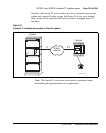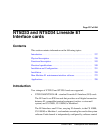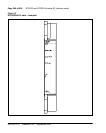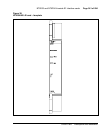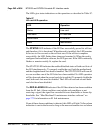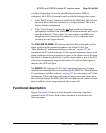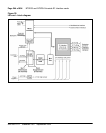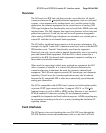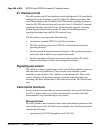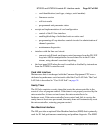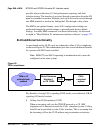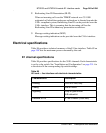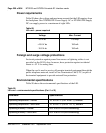
NT5D33 and NT5D34 Lineside E1 Interface cards Page 243 of 894
Circuit Card Description and Installation
condition. Depending on how the Man Machine Interface (MMI) is
configured, this LED will remain lit until one the following actions occur:
• If the “Self-Clearing” function is enabled in the MMI, the LED will clear
the alarm when the alarm condition is no longer detected. This is the
factory default configuration.
• If the “Self-Clearing” function has not
been enabled or it has been
subsequently disabled in the MMI, the LED alarm indication will stay lit
until the command “Clear Alarm” has been typed in the MMI, even
though the carrier automatically returned to service when the alarm
condition was no longer detected.
The YELLOW ALARM LED indicates that the LEI has detected a yellow
alarm signal from the terminal equipment side of the E1 link. See
“Man-Machine E1 maintenance interface software” on page 272 for
information on E1 link maintenance. If the terminal equipment detects a red
alarm condition such as not receiving a signal, or the signal exceeds bit-error
thresholds or frame-slip thresholds, a yellow alarm signal is sent to the LEI,
if the terminal equipment supports this feature. If a yellow alarm signal is
detected, this LED will light.
The MAINT LED indicates if LEI is fully operational because of certain
maintenance commands that are issued through the MMI. See “Man-Machine
E1 maintenance interface software” on page 272 for information on E1 link
maintenance. If the card detects that tests are being run or that alarms have
been disabled through the MMI, this LED will light and will remain lit until
these conditions are no longer detected, then it turns off.
Functional description
Figure 39 on page 244 shows a block diagram of the major functions
contained on the LEI card. Each of these functions is described on the
following pages.



